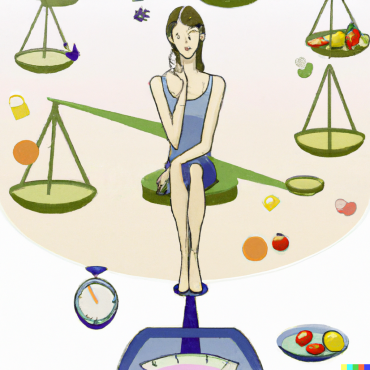Fasting has been an age old ancient practice. In all cultures of the world, fasting has been given great importance as well. Let me tell you here, I am not talking about religious fasting. Yes, it is true that fasting can help you in a number of ways such as, enhancing your spiritual journey, increasing your will power, helps you meditate, makes your mind and body much lighter, and also helps in Asanas while practicing yoga, And most importantly, it most definitely helps you lose weight!
Fasting purifies the body as well as the mind. It gets rid of toxins and all waste products. Unwanted emotions and negative thoughts also get removed. On your fasting days one can create a sense of love, and purity and well-being for oneself. Your Willpower also increases with every hour you fast. One has to remember that fasting has everything to do with your mind AND not just your body. One needs to condition oneself before the days of fasting. Yes you will feel hungry, your stomach will growl. But this is where your strong mind, and spiritual sense will come into play. Keep drinking plenty of water throughout the day. As soon as my stomach growls, i drink water. After about 24 hours your hunger dies a natural death. A minimum of 3ltr of water must be consumed. Feel the water, feel the purity and coolness of the water, after all our body is made of 75% water.

Fasting and Yoga
Acidity and Fasting
If you think about acidity, you will land up getting acidity. If you think about gas you will land up getting gas. The connection between the mind and the body is subtle, but also very powerful. Keeping one’s self occupied and engaged throughout the day also helps.
Facts about Fasting
If you are a non-believer of fasting, let me state a few facts here. Yoshinori Ohsumi of Japan won a NOBEL PRIZE for proving the benefits of fasting. His research proved – During starvation, cells break down proteins and non-essential components and reuse them for energy. They destroy invading viruses and bacteria, sending them off for recycling. And cells use “self-eating” method known as “autophagy” to get rid of damaged structures. The process is thought to go awry in cancer, infectious diseases, immunological diseases and neurodegenerative disorders.
Disruptions in autophagy are also thought to play a role in aging. This is exactly why our Rishis recommended it centuries and centuries ago. When the body is allowed to rest internally, with no energy being spent on the digestion of food, a deeper cleansing can happen which allows the natural regeneration of cells.
The mind must be strong, the will like iron. If one thinks about food the whole day the entire purpose of the fast is lost! You can do it for religious purposes, or for a spiritual purpose, or to just cleanse and reboot your system or to even just lose weight! The purpose must be absolute.
Yoga and Fasting
The night before your fast day, remember to eat well. The whole of your next day, be mindful of yourself, your thoughts and others. Get on your mat do some light yoga, you will see that your mind and body both work differently, you will feel more aware and alive. Try and connect with your own being. Cook a nice meal for your family or feed the needy, make sure you do everything with a lot of love.
One can start with fasting for 24 hours and then do a 36 hour fast. Ideally you eat in the night, drink lots of water the next day and eat the next morning. This will reset and re-boost your entire system. When breaking the fast, eat something light and healthy. I break my fast by eating cucumber, you can have a few fruits, and then eat normally.
Fasting will help you feel stronger mentally. It makes you feel healthier, adds a glow to your skin due to the intake of water, and definitely a change in your weight. So go ahead give it a try. I can promise you that it is something worth doing. But make sure to prepare yourself well in advance and with the right attitude!
Image Source: healthcheckup.manipalhospitals.com

























































Comments